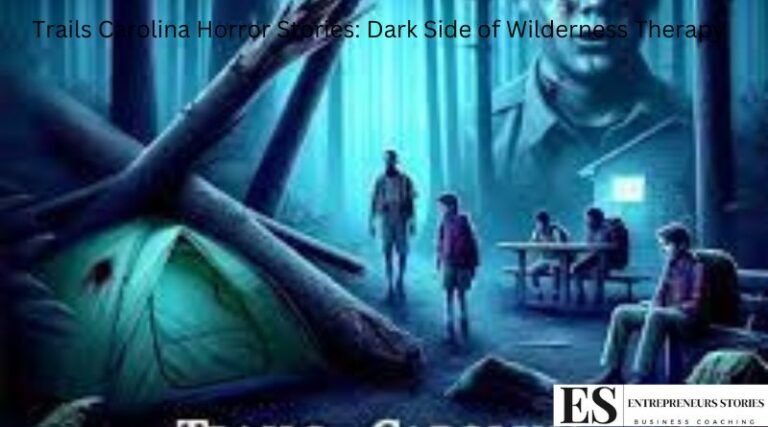Wilderness therapy programs have long been touted as beneficial interventions for troubled youth, promising transformation through nature and structured support. However, beneath the serene facade of forests and therapeutic sessions, some programs like Trails Carolina have darker narratives. This article delves into the “Trails Carolina horror stories,” shedding light on the troubling experiences reported by some participants and the implications for those considering such programs.
The Promise of Wilderness Therapy
Wilderness therapy, at its core, is designed to remove individuals from the distractions and negative influences of their regular environment. By doing so, these programs aim to foster personal growth, resilience, and healing in a natural setting. Trails Carolina, located in the picturesque landscapes of North Carolina, promises just that: a reset for troubled teens struggling with a range of emotional, behavioral, and psychological issues.
Unveiling the Horror Stories
Despite the tranquil settings and promises of growth, numerous reports and allegations have surfaced over the years from former participants of Trails Carolina. These accounts often tell a different story—a narrative filled with distress, mistreatment, and a lack of adequate care.
Harsh Realities of Daily Life
One of the most common themes in the horror stories from Trails Carolina revolves around the harsh conditions participants are subjected to. Reports of being forced to endure extreme weather without proper gear, minimal access to nutritious food, and exhausting physical activities are prevalent. These harsh conditions, meant to build character and resilience, have instead led to allegations of physical and psychological harm.
Psychological Impact
The psychological impact on some participants has been profound. Former attendees have spoken out about feeling isolated, punished, and humiliated under the guise of therapy. In some instances, the therapeutic practices have been described more as punitive measures rather than supportive interventions, leading to increased anxiety, depression, and in severe cases, traumatic responses.
Oversight and Accountability
The oversight of wilderness therapy programs like Trails Carolina has also come into question. The regulation of these programs varies significantly from state to state, often lacking comprehensive oversight. This lack of regulation can lead to inconsistencies in how programs are run and how well participants are protected, compounding the potential for negative experiences.
Voices from the Shadows
Personal testimonies provide the most visceral insight into what some have endured. Accounts of being ignored when in distress, punitive responses to requests for help, and an overarching sense of fear and helplessness paint a troubling picture. These stories are crucial for understanding the potential risks associated with such programs.
A Call for Transparency and Reform
In light of these horror stories, there is a growing call for increased transparency and reform in wilderness therapy. Advocates for change argue for stricter regulations, better training for staff, and more robust mechanisms for accountability. Additionally, they call for a shift in how these programs conceptualize and implement therapy, advocating for methods that truly prioritize the well-being and dignity of participants.
Navigating the Decision
For parents and guardians considering wilderness therapy as an option, these horror stories serve as a stark reminder to proceed with caution. It is essential to thoroughly research and visit any program, understand its accreditation and oversight, and speak to past participants and their families if possible.
Conclusion
While Trails Carolina and similar programs may offer the promise of transformation and healing, the horror stories that emerge compel us to scrutinize and question the practices of wilderness therapy. For those impacted, the scars remain long after the wilderness, serving as a reminder of what happens when therapy goes awry. It is a call to action for all involved in such programs to ensure that they are safe, transparent, and genuinely therapeutic environments.
Read also: check

